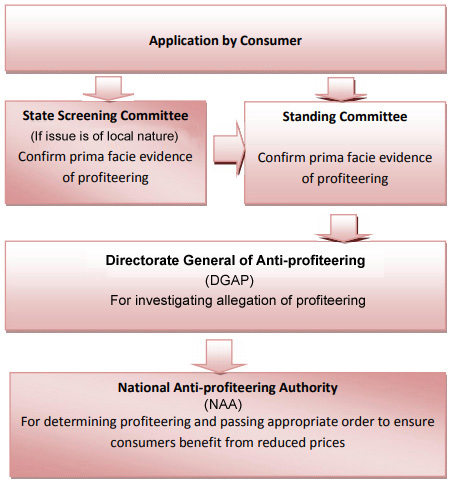7667766266
enquiry@shankarias.in
What is the issue?
The recent cases taken up by the National Anti-Profiteering Authority (NAA) have raised concerns as to its purpose and powers.
What is the recent case?
What is the recent proposal in this regard?

What are the concerns?
Source: Business Standard